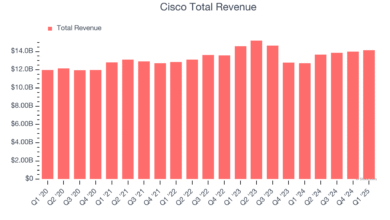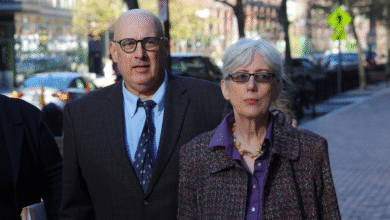DOJ Sandwich Thrower Incident: Officer Assault in DC
The DOJ sandwich thrower incident has generated significant media attention following the recent assault charges against Sean Charles Dunn, a now-former employee of the Department of Justice. On a Sunday night in Washington, D.C., Dunn infamously hurled a Subway sandwich at a federal officer, leading to his immediate termination from his position in the DOJ’s criminal division. Attorney General Pam Bondi made it clear that such disrespect towards law enforcement will not be tolerated within the government, highlighting the seriousness of the incident. Video footage shared by FBI Director Kash Patel shows the startling moment Dunn threw the sandwich, which has now become emblematic of a broader discussion around federal officer assaults. As the story unfolds, it raises questions about workplace conduct within federal agencies and the implications for employees who may engage in similar disruptive behavior.
The incident involving Sean Charles Dunn of the DOJ has sparked conversations around federal employee conduct and accountability. Dubbed the “Subway sandwich assault,” this event drew both disbelief and investigation after Dunn was charged with attacking a U.S. Customs and Border Protection agent. In an unprecedented move, the Department of Justice fired Dunn in light of the charges, reaffirming their commitment to uphold standards of behavior in federal service. This shocking event has also been highlighted in various DC law enforcement news articles, emphasizing the need for professionalism among government workers. As the repercussions of the assault unfold, it led many to reflect on the broader implications of federal officer safety and the conduct expected from those in positions of authority.
DOJ Sandwich Thrower Incident: An Overview
The recent incident involving the Department of Justice (DOJ) employee throwing a Subway sandwich at a federal officer has garnered significant attention, leading to immediate repercussions. Sean Charles Dunn, who was employed in the DOJ’s criminal division, has been charged with federal assault following this bizarre encounter. This incident, which unfolded on a sidewalk in Washington, D.C., raises concerns about employee conduct and accountability within federal agencies.
The video footage of the event, shared by FBI Director Kash Patel, depicts Dunn launching a sandwich at a U.S. Customs and Border Protection agent, highlighting how escalated situations can arise in everyday interactions. U.S. Attorney General Pam Bondi emphasized the seriousness of the act, declaring that such disrespect towards law enforcement would not be tolerated under any circumstances, especially from someone representing the DOJ.
Consequences for Federal Officers: Assault Charges
Assaulting a federal officer is a serious crime, particularly in light of existing tensions between law enforcement and citizens. Sean Charles Dunn now faces felony charges that could lead to severe penalties if convicted. Such actions not only disrupt public safety but also jeopardize the integrity of federal law enforcement agencies, which are often on the frontlines of maintaining order.
The urgency in the DOJ’s response to Dunn’s actions illustrates an underlying commitment to uphold the standards expected from public servants. As this case develops in the courtroom, it will serve as a notable example of the ongoing efforts to address misconduct and ensure that individuals in positions of authority remain accountable for their behavior.
Impact on DOJ and Federal Law Enforcement
The firing of Sean Charles Dunn is a significant move by the DOJ, signaling a zero-tolerance policy toward unprofessional conduct by its employees. This incident fuels ongoing discussions about the need for reforms within federal law enforcement bodies. Attorney General Pam Bondi’s remarks underscore the DOJ’s commitment to refocusing its priorities and eliminating behaviors that undermine its credibility.
With the incident being part of a broader narrative regarding the relationship between law enforcement and the public, it highlights the importance of maintaining professionalism among federal officers. This event could act as a catalyst for further discussions about law enforcement training and the handling of discretionary situations that might escalate unexpectedly.
The Role of Video Evidence in Modern Law Enforcement
Video evidence plays a pivotal role in contemporary law enforcement, influencing how incidents are perceived and adjudicated. In the case of Sean Charles Dunn, the footage captured a clear depiction of his actions, providing critical context that may affect the course of the legal proceedings. Video evidence often serves not only as a tool for accountability but also as a potential deterrent for future misconduct among personnel.
Moreover, the public release of such videos can provoke varied reactions, ranging from outrage to calls for reform. In this instance, the video corroborates the statements made by law enforcement and illustrates the importance of transparency in managing public trust. As more agencies adopt body cameras and surveillance technology, these tools will likely continue to reshape the landscape of law enforcement accountability.
Federal Employee Conduct: Expectations and Responsibilities
Employees of federal agencies, particularly those within the DOJ, are held to high standards due to their roles in public service. Sean Charles Dunn’s actions reflect a disturbing deviation from the expected conduct, raising questions about oversight and the effectiveness of existing behavioral guidelines within the DOJ. The swift termination of Dunn demonstrates the agency’s recognition of the necessity for rigorous enforcement of ethical standards.
It is crucial for federal employees to understand that their actions, both on and off duty, reflect not only on their character but also on the institutions they represent. This incident is a reminder to all federal employees of the gravity of their responsibilities and the potential consequences of irresponsible behavior in their personal lives.
Public Perception of Law Enforcement Amidst Controversy
The relationship between law enforcement and the public is under constant scrutiny, especially in the wake of high-profile incidents such as the sandwich-throwing episode involving Sean Charles Dunn. This case could further corrupt public perception of federal officials, intensifying debates surrounding misconduct and reform. It raises questions about the public’s trust in law enforcement agencies during a time of heightened awareness regarding accountability.
With citizens increasingly engaged in discussions about police behavior, it becomes imperative for law enforcement agencies to rebuild trust through transparency and accountability. The DOJ’s response to Dunn’s actions, including his termination and the pursuit of felony charges, is an essential step in addressing public concerns and reaffirming its commitment to professional integrity.
Legal Ramifications of Assaulting a Federal Officer
Assaulting a federal officer carries significant legal consequences, and the prosecution of Sean Charles Dunn serves as a critical reminder of this reality. The charges he faces could lead to hefty fines and imprisonment, reflecting the seriousness with which the government treats such offenses. Federal law mandates that actions against federal officers, especially during the execution of their duties, be met with stern repercussions to maintain the rule of law.
Additionally, this incident may contribute to ongoing conversations about the necessity for strong deterrents against assaults on law enforcement personnel. By prosecuting individuals like Dunn, the government sends a clear message that disrespecting and assaulting those in law enforcement positions will result in legal action.
The Importance of Accountability in Federal Agencies
Accountability in federal agencies is of utmost importance to ensure that employees uphold the values and responsibilities of public service. The swift action taken against Sean Charles Dunn by the DOJ highlights the agency’s commitment to maintaining integrity and ethical behavior among its staff. Analysts argue that such proactive measures can help to restore public confidence in federal institutions.
Furthermore, accountability mechanisms within agencies can foster a culture of respect and professionalism, effectively reducing the likelihood of misconduct. As agencies reflect on this incident, they may contemplate implementing stricter oversight and training programs to prevent similar situations in the future.
Continuation of Violence Against Law Enforcement: A Broader Issue
The act of throwing a sandwich at a federal officer, while seemingly trivial, underscores a troubling trend of increasing violence against law enforcement personnel across the nation. This incident involving Sean Charles Dunn raises alarms about how such behavior, even in jest, can escalate quickly and endanger the safety of officers. It signifies the broader societal issues that law enforcement must navigate in their daily duties.
As discussions around public safety evolve, agencies like the DOJ are tasked with addressing the underlying factors contributing to such incidents. Increasing dialogue surrounding mental health, community relations, and police training can help mitigate occurrences of conflict and ultimately improve interactions between citizens and law enforcement.
The Future of Federal Law Enforcement Post-Incident
The sandwich thrower incident involving Sean Charles Dunn is likely to have lasting implications for federal law enforcement. As agencies reevaluate their policies and protocols concerning employee conduct, they may also consider new training initiatives to strengthen the relationship between officers and the communities they serve. The DOJ’s response may serve as a benchmark for future conduct guidelines within federal institutions.
Additionally, this incident could catalyze more extensive dialogues about ensuring that federal employees understand their duties. As agencies emphasize accountability and professionalism, they can forge a path toward restoring trust with the public and improving the efficacy of law enforcement operations.
Frequently Asked Questions
What happened in the DOJ sandwich thrower incident involving Sean Charles Dunn?
The DOJ sandwich thrower incident involved Sean Charles Dunn, an employee of the Department of Justice, who was charged with federal assault for throwing a Subway sandwich at a U.S. Customs and Border Protection agent in Washington, D.C. This incident escalated into a serious situation, leading to Dunn’s arrest and subsequent termination from the DOJ.
How did the DOJ respond to the sandwich assault on a federal officer?
Following the Subway sandwich assault incident, the DOJ acted swiftly by terminating Sean Charles Dunn’s employment. Attorney General Pam Bondi confirmed his dismissal and emphasized that disrespect towards law enforcement would not be tolerated within the administration.
What are the details surrounding Sean Charles Dunn and the federal officer assault?
Sean Charles Dunn was charged with a felony for assaulting a federal officer by throwing a Subway sandwich at a Customs and Border Protection agent. The incident, which occurred in Washington, D.C., involved Dunn verbally engaging with agents before the sandwich attack.
What charges did Sean Charles Dunn face after the sandwich thrower incident?
Following the DOJ sandwich thrower incident, Sean Charles Dunn faced felony federal assault charges. He was apprehended after attempting to flee the scene, and during the police processing, he admitted, ‘I did it. I threw a sandwich.’
What are the implications of the DOJ sandwich thrower incident for federal employee conduct?
The DOJ sandwich thrower incident highlights the serious expectations for conduct among federal employees. With Sean Charles Dunn’s termination, Attorney General Pam Bondi made it clear that any behavior that undermines law enforcement will result in significant consequences, reinforcing accountability within federal agencies.
Is there a video of the sandwich thrower incident involving Sean Charles Dunn?
Yes, there is a video of the DOJ sandwich thrower incident. The footage shared by FBI Director Kash Patel shows Sean Charles Dunn throwing a Subway sandwich at a federal officer before fleeing the scene, capturing the altercation that led to his arrest.
What was the public reaction to the DOJ employee firing after the sandwich assault?
The public reaction to the firing of Sean Charles Dunn after the DOJ sandwich thrower incident reflected a mix of shock and scrutiny regarding the actions of federal employees. Many expressed concerns over the implications of such behavior and the responsibility of the DOJ to uphold professional standards.
How did the DOJ sandwich thrower incident affect law enforcement in Washington, D.C.?
The DOJ sandwich thrower incident has contributed to ongoing discussions about law enforcement in Washington, D.C., particularly concerning the conduct of federal employees. It also emphasizes the commitment of the DOJ to maintain respect for law enforcement authority amid increasing tensions in public order.
| Key Point | Details |
|---|---|
| Incident Overview | Sean Charles Dunn, a DOJ employee, threw a Subway sandwich at a federal officer, leading to an assault charge. |
| Employee Status | Sean Charles Dunn was part of the DOJ’s criminal division and has been fired following the incident. |
| Official Statements | Attorney General Pam Bondi confirmed Dunn’s termination, highlighting government accountability. |
| Incident Footage | A video released by FBI Director Kash Patel showed Dunn throwing the sandwich and subsequently fleeing the scene. |
| Legal Outcome | Dunn was arrested and faces felony federal assault charges for his actions. |
Summary
The DOJ sandwich thrower incident has brought significant attention as Sean Charles Dunn, a former employee of the Department of Justice, is charged with federal assault after throwing a sandwich at a federal officer in Washington, D.C. This bizarre event highlights the importance of accountability within government agencies and has resulted in Dunn’s immediate termination. As the DOJ aims to restore its integrity, such incidents raise questions about employee conduct and its implications for public trust.




